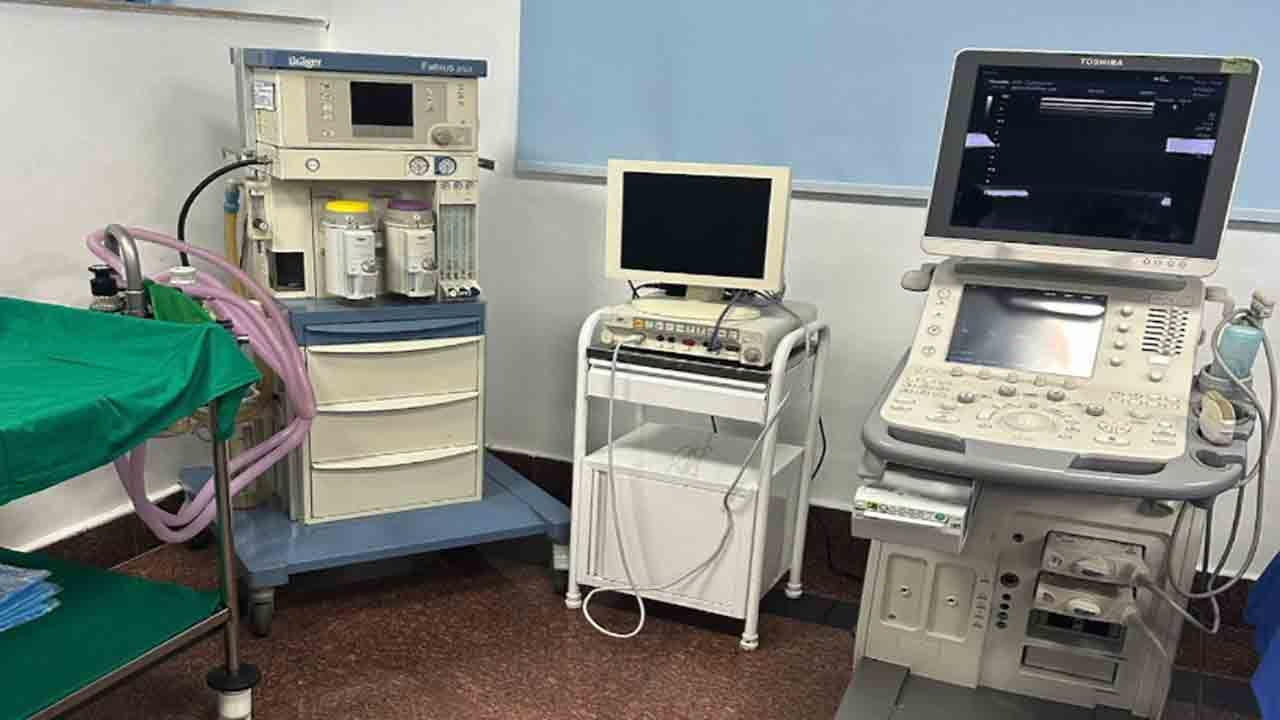In a groundbreaking development for healthcare in Pakistan, coablation cancer treatment has been introduced for the first time in the history of Punjab. This innovative technology, inaugurated by Chief Minister Maryam Nawaz Sharif at Mayo Hospital Lahore, promises to revolutionize how cancer patients are treated in the province. Unlike traditional methods such as chemotherapy and surgery, coablation treatment offers faster recovery, less pain, and a safer approach to tackling complex tumors.
Coablation Cancer Treatment Inaugurated at Mayo Hospital
The launch of Punjab’s first coablation cancer treatment center at Mayo Hospital is being hailed as a historic moment in the fight against cancer. Maryam Nawaz Sharif emphasized that this facility will ensure patients have access to modern technology in collaboration with Chinese experts. The coablation method uses electrical heat to target and burn away affected tissues, destroying tumors without the need for invasive surgery.
This technique has already shown promising results in treating liver tumors, breast cancer, and even lung conditions. According to doctors, the treatment also reduces the chances of complications compared to chemotherapy and surgical procedures.
How Coablation Cancer Treatment Works
The uniqueness of coablation cancer treatment lies in its minimally invasive approach. By using controlled electrical heat, doctors can directly destroy cancerous tissues without causing significant damage to surrounding healthy cells. This precision allows for quicker recovery and less discomfort for patients.
At Mayo Hospital, a team of experts has already successfully used this technology to treat breast cancer and lung cancer patients. In some cases, it has also been applied to clear blockages in arteries supplying blood to the liver. Such breakthroughs highlight the potential of this treatment to address multiple forms of cancer more effectively than conventional therapies.
Expert Opinions on Coablation Cancer Treatment
Senior doctors have described the introduction of coablation cancer treatment as a major medical breakthrough in Pakistan. Dr. Ayesha Ahmed, one of the leading specialists in this field, stated that the method has already transformed patient outcomes by reducing pain and speeding up the healing process. She further explained that the procedure is particularly beneficial for patients who may not be strong enough to undergo surgery or endure the side effects of chemotherapy.
This aligns with international findings as well. Globally, non-invasive and minimally invasive cancer treatments are gaining recognition. According to the World Health Organization (WHO), innovative treatment methods have helped reduce cancer-related mortality rates by almost 15% in countries where such technologies are widely adopted.
The Growing Burden of Cancer in Pakistan
The need for advancements like coablation cancer treatment is more urgent than ever. Pakistan has witnessed a sharp increase in cancer cases over the past decade. According to the Pakistan Health Research Council (PHRC), more than 180,000 new cancer cases are reported annually, with breast cancer being the most common among women and lung cancer leading among men.
Traditional treatments often require long hospital stays, cause severe side effects, and are financially burdensome. With the introduction of coablation technology, many of these challenges can be reduced, offering patients an affordable and effective solution.
Government’s Role in Expanding Coablation Cancer Treatment
During the inauguration, Chief Minister Maryam Nawaz Sharif assured that the government would continue to expand facilities for coablation cancer treatment across Punjab. She highlighted plans to establish more centers in different cities so that patients from rural areas would not need to travel to Lahore for advanced treatment.
Her vision is to create a province-wide network of modern cancer facilities, making cutting-edge treatments accessible to everyone. If implemented effectively, this initiative could significantly improve survival rates and reduce the suffering of thousands of patients each year.
Why Coablation Cancer Treatment Matters for the Future
The introduction of this treatment marks more than just a medical advancement; it symbolizes a shift toward patient-focused healthcare in Pakistan. Unlike traditional therapies, coablation cancer treatment ensures patients experience less trauma, quicker healing, and better overall quality of life.
Moreover, the method reduces dependency on chemotherapy drugs, which often have harsh side effects and limited success rates in advanced stages of cancer. For a country like Pakistan, where cancer is a growing health crisis, this step forward represents hope for countless families.
The arrival of coablation cancer treatment in Punjab is a milestone for the healthcare sector. By inaugurating the first facility at Mayo Hospital, the government has taken a bold step to modernize cancer care in Pakistan. This innovative treatment not only provides relief to patients but also strengthens the province’s medical infrastructure.
With continued government support and expansion of such facilities, Pakistan could soon join the ranks of countries leading in modern cancer care. For now, the introduction of coablation cancer treatment brings new hope to patients and their families, promising a future where cancer recovery is faster, less painful, and more effective.



